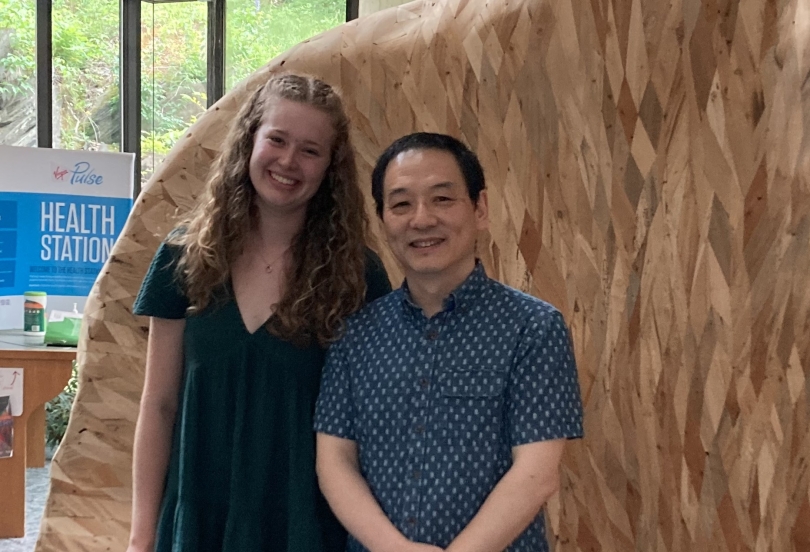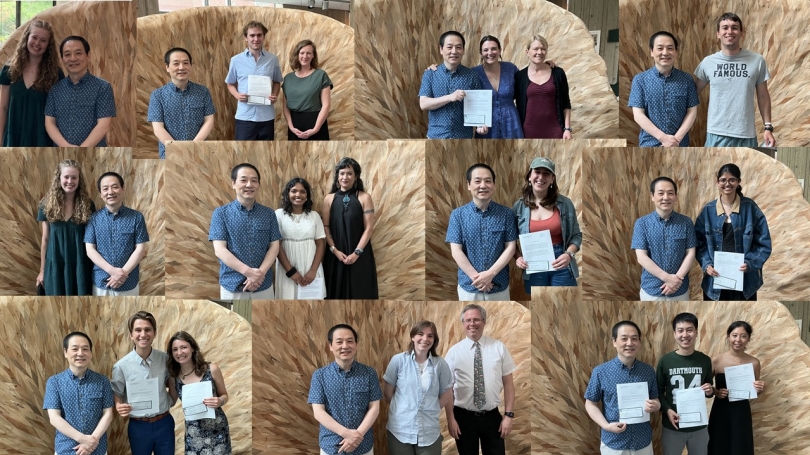

Congratulations to all Geography graduating seniors, and a special congratulations to the following award winners:
George Perkins Marsh was a member of the U.S. Congress, an author and farmer, and was the U.S. Minister to Turkey and Italy. He graduated from Dartmouth in 1820 and is the author of the book The Earth as Modified by Human Activity, possibly the earliest Anglophone treatise on human-environment geography. This work eventually helped found the environmental movement in the United States.
This year's George Perkins Marsh award goes to Lily Gray for her senior honors thesis on the use of thermal remote sensing to study Boston's urban heat island. Her work on that thesis nicely responds to Marsh's 19th-century vision of the interaction between humans, environment, and climate.

Doreen Massey was a geographer of incredible breadth, with pioneering works in economic, feminist, Marxist and cultural geography. And she was centrally concerned with power relationships in all their complexity and how to challenge them when necessary. She was also fiercely committed to creating societies where there is democracy, equality and freedom, and to the creative and radical movements that might bring about such change. Accordingly, this Award goes to the student who exemplifies Massey's brilliant interdisciplinarity and socially relevant scholarship.
This year's Doreen Massey award goes to Avery Borgmann and Colin Donnelly.
One of two Doreen Massey awards goes to Avery Borgmann. Avery is passionate about things she decides to do. One of those things happens to be applying the most advanced geographic methodologies to addressing social justice issues. A prominent outcome of this passion at Dartmouth is her outstanding high honor thesis, which examines the inequality in the maternity care services in DC.

The geography department is pleased to award Colin Donnelly one of the two Doreen Massey Prizes in recognition of his excellent interdisciplinary scholarship that creatively bridges critical geography and art practice. Colin brings enthusiasm, commitment, and care to his research and scholarship. We in geography are particularly proud that we were able to draw him into the major at the last minute and we congratulate him on his excellent thesis on Queer Placemaking through art in NYC.
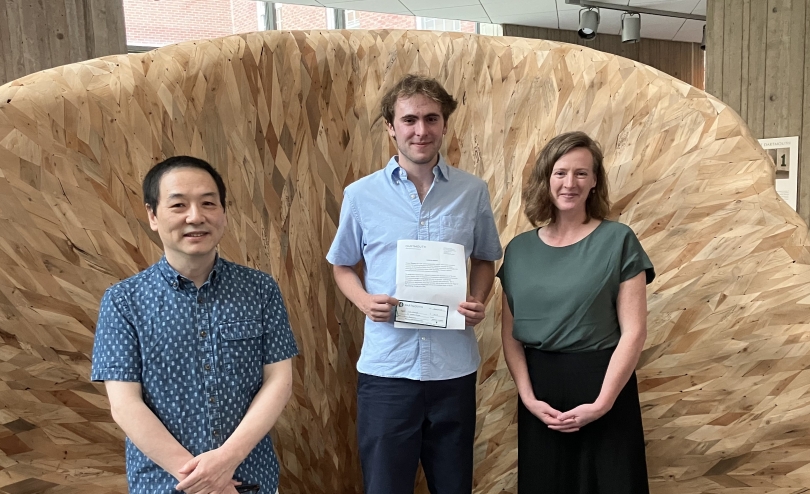
Thelma Glass was a professor of geography at Alabama State University where she taught for over 40 years. She was also deeply committed to social change, having been a member of the Women's Political Council, which helped organize the Montgomery Bus Boycott in 1955-56. In addition to her academic interests in economic, cultural and physical geography, she was known around the Alabama State campus as a teacher-activist willing to put her ideals into concrete actions. Accordingly, we grant this prize to a graduating senior who best reflects Professor Glass' spirit as a scholar-activist.
This year's Thelma Glass award goes to Janine D'Souza. Since arriving at Dartmouth, Janine immediately engaged with Center for Social Impact, first as a Foundations in Social Impact Fellow, then through Strengthening Educational Access with Dartmouth (SEAD) as an educational access advisor. On her off terms, she interned at Save the Children, South Carolinians for Alternatives to the Death Penalty, and the International Rescue Committee; for her commitment to making change in the world, she has received the LGBTQIA+ Community Advocate Award and the Jan-Roberta Tarjan Award for Local Community Service.
Janine's thesis, Getting Here and Being Here: The Failed Dream of Refugee Resettlement in the U.S., was a true culminating experience, drawing together her course work, internships and extracurricular activities, and research while also conveying her immense commitment to understanding and improving the lives of some of the most marginalized people.
After a few weeks travel with friends and family, Janine will begin her new job at Perry Law Firm in New York City as a legal analyst.
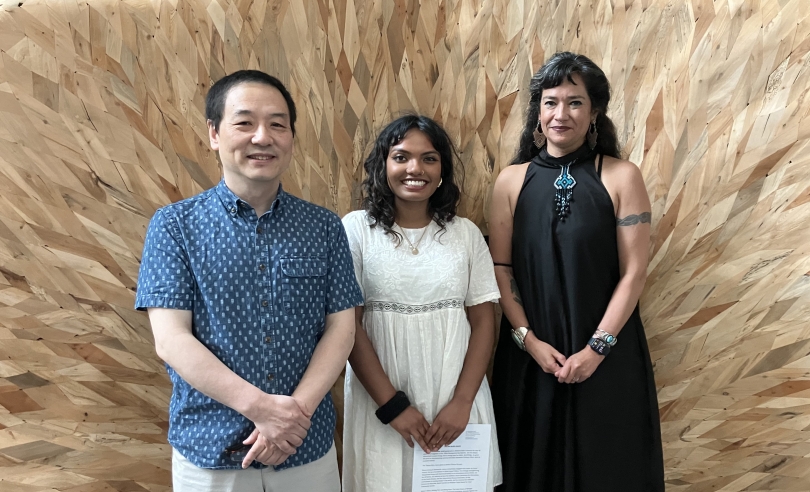
Rachel Carson's book Silent Spring, published in 1962, ushered in the modern environmental movement and influenced a generation of conservationists, scientists, and grassroots activists. She was a vocal and articulate advocate for the environment who argued that unchecked industrial activities were engendering catastrophic change to the natural world. This Award is given to the student who best represents Rachel Carson's passion for the environment, intelligence, and her commitment to political change.
This year's Rachel Carson award goes to Zanna Gulick-Stutz. Zanna's academic work, as well as her professional and personal experiences on and around rivers, make her an ideal recipient for the Rachel Carson award.
Her thesis, which focuses on how climate change intersects with the environmental politics and knowledge controversies surrounding the possible breaching of the Lower Snake River dams, raises questions about society's relationship with, and obligation to, the natural environment – questions that were central to the work of Rachel Carson. Zanna's research builds on that work and advances our understanding of the environmental challenges confronting our world in the 21st century
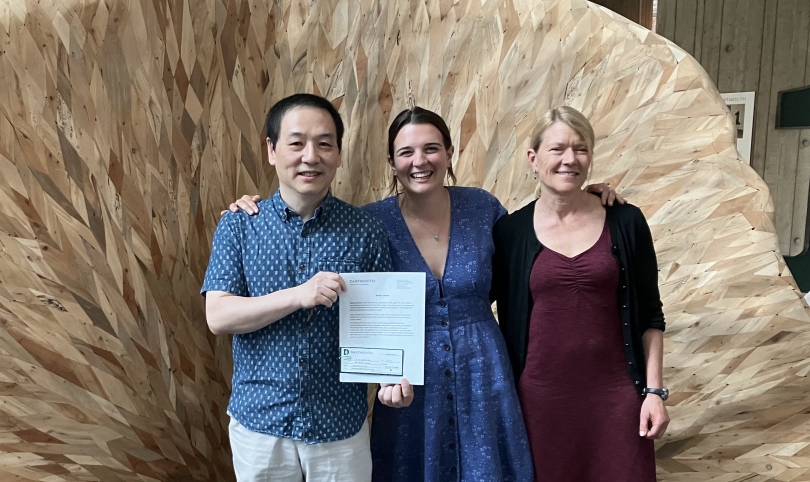
Humboldt was a broad-ranging thinker of the late 18th and early 19th century who sought to understand nature and society as a complex, holistic entity. His landmark work Kosmos established him as a pioneer of biogeography and landscape analysis, and was an early statement on carving out geography as a distinct discipline that combined the human and physical sciences.
This year's Alexander von Humboldt award goes to Richard Lytle. Richard, following in that tradition but perhaps slightly less prolific than Humboldt, travelled to one distant continent and wrote one senior honor's thesis but it was an outstanding piece of scholarship that has earned him the Alexander von Humboldt Prize.

This award goes to the student whose time at Dartmouth epitomizes President Dickey's charge that "the world's problems are your problems.'" It honors Leah Horowitz, a Geography major who in 2009 died tragically in Ghana, where she worked for a development agency. As a student Leah taught and humbled us; she combined great intellect with wanting to know how what she learned here was going make a difference in the larger world. She lost no time in doing that, first as an AmeriCorps volunteer and then working for the International Food Policy Research Institute where, notably, she asked to be transferred from DC to the field office in Ghana. It is to honor Leah's memory—and her deep commitment to social justice—that we give this award.
This year's Leah Horowitz Award for Social Justice goes to Solange Acosta Rodriguez. Solange is a tireless activist working across a wide range of issues and places, including Indigenous rights and energy justice in both Chile and Norway. As everyone is probably aware, she is also a prominent campus voice for the rights of peoples around the world experiencing oppression and injustice. We are extremely proud to have her as a Major, and believe she embodies Leah's commitments to emancipation and social justice.
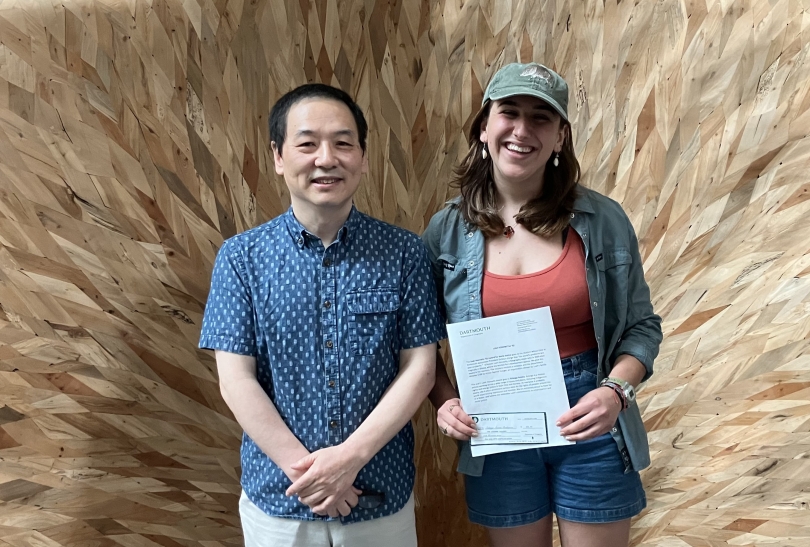
Bob Huke graduated from Dartmouth in 1948, went on to earn his PhD at Syracuse, and returned to Dartmouth to teach and research in 1953. He was a fabulous teacher and mentor to many students. His research focused on food and population in his teaching and research and spent many winter terms at IRRI—the International Rice Research Institute in Los Banos, Philippines—mapping and deepening his understanding of the cultures of rice farming. Above all else, Bob is remembered in our department for his enthusiasm for Geography. Accordingly, this award recognizes the student best embodying Bob Huke's spirit and passion for Geography.
This year's Bob Huke award goes to Avery Fogg, Wenhan Sun, and Lily Ding.

The Geography Stretch '76 Fund is an endowment established by alumni who attended the 1976 "geography stretch" (a field course that taught geographic skills while traveling in the US) to help support the study of Geography at Dartmouth College. This award is given to the student who best exemplifies the spirit of the stretch by never being afraid to face important challenges and adventures.
This year's Stretch award goes to Keelia Stevens and Joseph Earles.
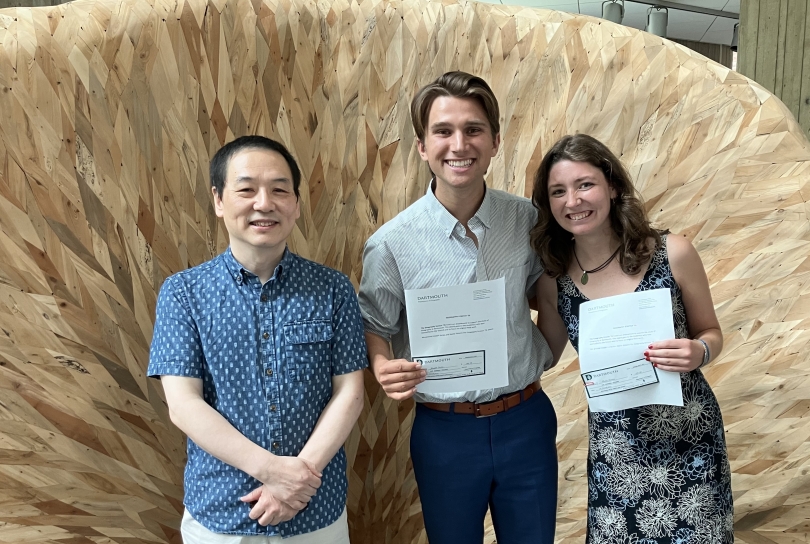
Guido R. Rahr '51 came from a family of conservationist-philanthropists. In the 1980's, the Rahr Foundation—in honor of Guido's love of geography—donated a tract of land in Oregon to the College with the intent of supporting the Department. The land was eventually sold and the endowment has grown to the point where it now supports a range of activities in the department, including most obviously the Rahr GIS lab. This Award goes to the student who best represents Guido's passion for cartography and spatial science.
This year's Rahr award goes to Ishika Jha.
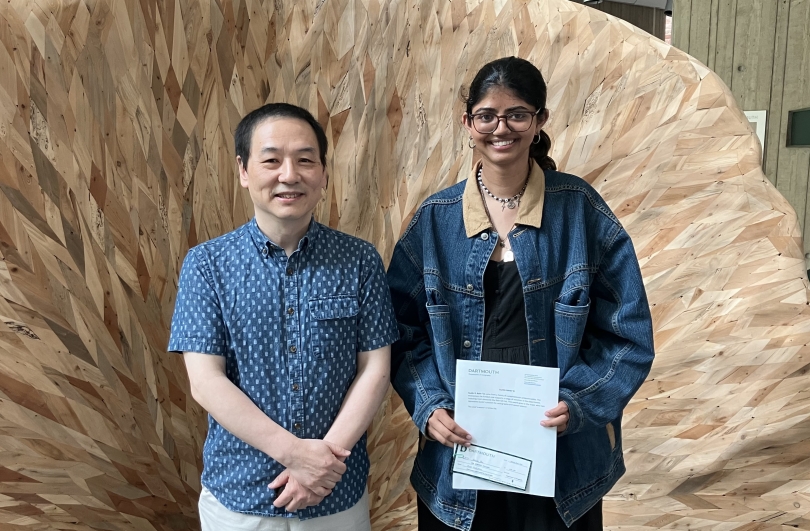
Geography Award of Excellence is an Excellence in Scholarship Award to an outstanding senior geography major with the highest departmental GPA.
This year's award goes to Avery Borgmann for her outstanding 4.0 GPA standing.
